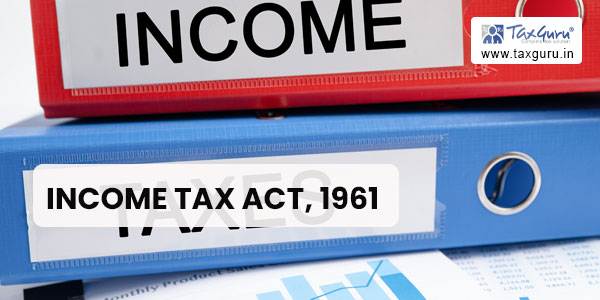Chapter XVIIB of the Act relates to deduction of tax at source. The provisions of this chapter provide for TDS on various payments at rates contained therein. It is proposed to provide for TDS by person responsible for paying any sum to any resident for purchase of goods. The rate of TDS is kept very low at 0.1%. To ensure that compliance burden is only on those who can comply with it, it is proposed that the tax is only required to be deducted by those person (i.e ―buyer) whose total sales, gross receipts or turnover from the business carried on by him exceed ten crore rupees during the financial year immediately preceding the financial year in which the purchase of goods is carried out.
Section 194Q- Deduction of tax at source on payment of certain sum for purchase of goods
0.1 % TDS on payment of any sum exceeding ₹ 50 lac on purchase of any goods
(1) Any person, being a buyer
- who is responsible for paying
- any sum to any resident (hereafter in this section referred to as the seller)
- for purchase of any goods of the value or aggregate of such value
- exceeding ₹ 50 lacs
- in any previous year,
- shall, at the time of credit of such sum to the account of the seller or at the time of payment thereof by any mode, whichever is earlier,
- deduct an amount equal to 0.10% of such sum exceeding fifty lakh rupees as income-tax.
Explanation.—For the purposes of this sub-section,
“buyer” means a person
- whose total sales, gross receipts or turnover from the business carried on by him
- exceed ₹ 10 Cr. during the financial year immediately preceding the financial year in which the purchase of goods is carried out,
- not being a person, as the Central Government may, by notification in the Official Gazette, specify for this purpose, subject to such conditions as may be specified therein.
Such sum credited in the name of whatever name you called will deemed to be consider as payment made to seller and TDS will require to be deducted.
(2) Where any sum referred to in sub-section (1)
- is credited to any account, whether called “suspense account” or by any other name,
- in the books of account of the person liable to pay such income,
- such credit of income shall be deemed to be the credit of such income to the account of the payee and
- the provisions of this section shall apply accordingly.
In case of difficulties, board will issue guidelines after taking approval from CG
(3) If any difficulty arises in giving effect to the provisions of this section, the Board may, with the previous approval of the Central Government, issue guidelines for the purpose of removing the difficulty.
Guidelines shall be laid before House of Parliament and shall be binding on the income-tax authorities and deductor
(4) Every guideline issued by the Board under sub-section (3) shall, as soon as may be after it is issued, be laid before each House of Parliament, and shall be binding on the income-tax authorities and the person liable to deduct tax.
Provision will not apply in certain cases
(5) The provisions of this section shall not apply to a transaction on which—
(a) tax is deductible under any of the provisions of this Act; and
(b) tax is collectible under the provisions of section 206Cother than a transaction to which sub-section (1H) of section 206C
TDS as per this section will not applicable if TDS or TCS provisions are applicable for such kind of transaction
This means, if on a transaction
- a TDS or TCS
- is required to be carried out
- under any other provision,
- then it would NOT be subjected to TDS under this section.
Where TDS provision of this section and TCS provision of Section 206c(1H) applicable together, TDS will required to be deducted as per this section.
There is one Exception to this general rule.
- If on a transaction TCS is required under sub-section (1H) of section 206C as well as TDS under this section,
- then on that transaction only TDS under this section shall be carried out.
In simple words, 194Q will applies if all the following below conditions are satisfied to the assessee: –
1. Buyer, who is paying any sum to the seller, having turnover in the preceding previous year more than ₹ 10 Cr and,
2. Such buyer is paying a sum which in aggregate exceeding ₹ 50 lac during the financial year and,
3. Non- applicability of sub-section (5) of section 194Q on the assessee.
Section 206C-Profits and gains from the business of trading in alcoholic liquor, forest produce, scrap, etc.
Extract of section 206C(1H)
- Every person, being a seller,
- who receives any amount as consideration
- for sale of any goods of the value or aggregate of such value exceeding ₹ 50 lacs
- in any previous year,
- other than the goods being exported out of India or goods covered in sub-section (1) or sub-section (1F) or sub-section (1G) shall, at the time of receipt of such amount, collect from the buyer, a sum equal to 0.10 % of the sale consideration exceeding ₹50 lacs as income-tax:
First proviso of sub-section (1H) of Section 206C -5 % rate in case of non-availability of PAN or Aadhar of the buyer

Provided that
- if the buyer has not provided the PAN number or the Aadhaar number to the seller,
- then the provisions of clause (ii) of sub-section (1) of section 206CCshall be read as if for the words 5%, the words 1% had been substituted:
Second proviso of sub-section (1H) of Section 206C – Non-applicability of this provision if TDS applicable in other provisions of the income tax
Provided further that
- the provisions of this sub-section shall not apply,
- if the buyer is liable to deduct TDS under any other provision of this Act on the goods purchased by him from the seller and has deducted such amount.
Explanation.—For the purposes of this sub-section,—
(a) “buyer” means a person who purchases any goods, but does not include,—
(A) the Central Government, a State Government, an embassy, a High Commission, legation, commission, consulate and the trade representation of a foreign State; or
(B) a local authority as defined in the Explanation to clause (20) of section 10; or
(C) a person importing goods into India or any other person as the Central Government may, by notification in the Official Gazette, specify for this purpose, subject to such conditions as may be specified therein;
It means this provision shall not applicable on the above-mentioned buyer.
(b) “seller” means
- a person whose total sales, gross receipts or turnover from the business carried on by him
- exceed ₹ 10 Cr. during the financial year immediately preceding the financial year in which the sale of goods is carried out, not being a person as the CG may, by notification in the Official Gazette, specify for this purpose, subject to such conditions as may be specified therein.
Disclaimer: The information given in this document has been made on the basis of the budget introduced. It is based on the analysis and interpretation of applicable laws as on date. The information in this document is for general informational purposes only and is not legal advice or a legal opinion. You should seek the advice of the legal counsel of your choice before acting upon any of the information in this document. Under no circumstances whatsoever, we are not responsible for any loss, claim, liability, damage(s) resulting from the use, omission or inability to use the information provided in the document.





